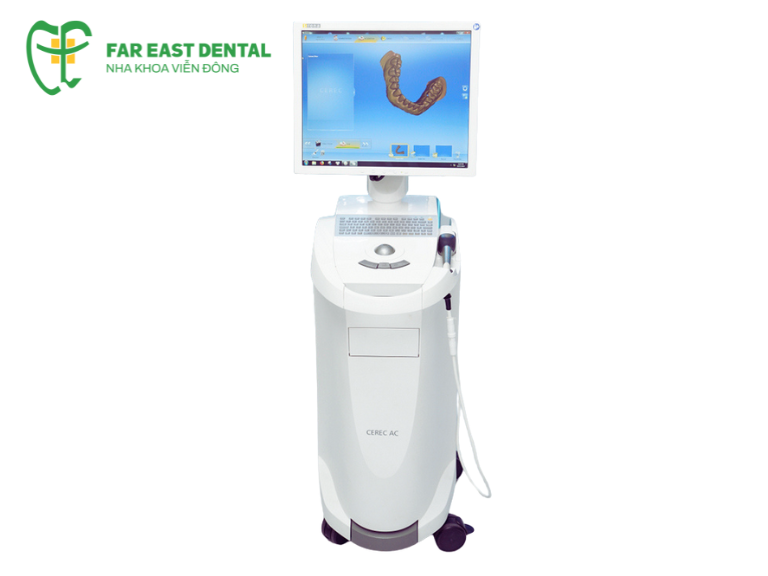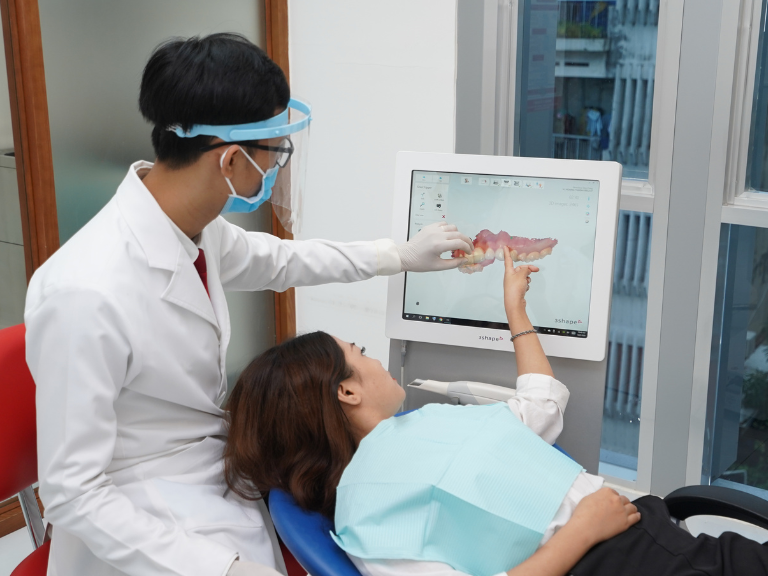Since May 2016, Far East Dental Clinic has proudly pioneered the application of CAD/CAM and digital dentistry technologies, with a highlight being the 3Shape intraoral scanner system. This is not just an equipment upgrade but a true revolution, marking a groundbreaking advancement in the field of aesthetic dental restorations, bringing exceptional treatment experiences to every patient.
1. 3Shape Scanner Technology: Ending the Discomfort of Traditional Dental Impressions
The 3Shape scanner has completely redefined the process of taking dental impressions and fabricating restorations. Forget the discomfort, gagging sensation, and long waiting times associated with bulky impression trays. Now, with a compact, wand-like scanner, your entire 3D dental image is captured quickly, with precise detail, and transformed into digital data within minutes. This data is immediately transferred to the computer system for processing, ushering in a new era of precise and convenient dental restorations.

2. Fast and Accurate Restoration Process
Digital scan data is the key to a superior restoration process. Our laboratory specialists use this information to design and fabricate restorations such as crowns, veneers, inlays, and onlays with exceptional accuracy.
Now, the entire process can be completed within just 24 hours—a remarkable leap forward compared to the lengthy waiting times of the past. The dream of having a brand-new smile with aesthetic, durable, and perfectly fitted ceramic restorations in just one day has become a reality at Far East Dental Clinic.

3. Applications in Implant Dentistry
CAD/CAM technology also plays a crucial role in implant dentistry. The digital system enables the 3D printing of customized surgical guides, designed and manufactured directly at the clinic. These guides help ensure implants are placed in the optimal position, shortening treatment time and minimizing discomfort.
Compared to traditional implant surgery, which is prone to errors, the digital system guarantees a quicker, less painful procedure with optimal results.
Quick, Effective Care at Far East Dental Clinic
We are committed to delivering high-quality treatment with the most advanced technologies, ensuring every patient enjoys a comfortable and satisfying experience.



